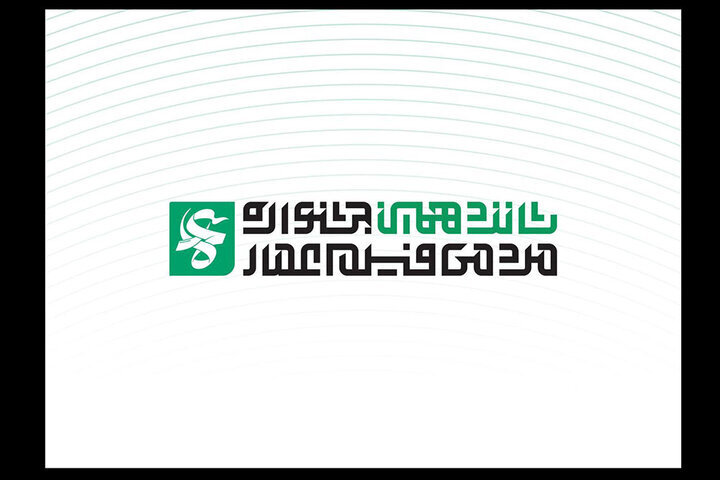16th Ammar festival launched with focus on Iran’s resistance against the West

TEHRAN- The 16th edition of the Ammar Popular Film Festival has officially commenced, highlighting the theme “The Civilizational Battle of Islamic Iran with the Wild West.”
According to the official call, Iran’s centuries-long experience of confronting colonialism, terrorism, sanctions, censorship, war, and cultural infiltration can only be comprehensively analyzed through the lens of a “civilizational conflict.” This ongoing struggle manifests today in media warfare, distortion of resistance discourse, attacks on Islamic identity, and efforts to portray the revolutionary movement as ineffective.
The festival’s secretariat emphasizes that in the face of such aggression, no front is more effective than the realm of committed art, thought, and media.
In its sixteenth edition, Ammar invites filmmakers, documentarians, writers, media activists, social media influencers, grassroots groups, and young enthusiasts to produce diverse works across various formats, contributing to this civilizational narrative. Artists, filmmakers, and media activists are invited to submit their works by November 6.
Eligible submissions may include feature films (short, medium, full-length, telefilms, series), documentaries, animations, music videos, television productions (combined, reality-based, documentary contests, news reports), internet programs, social media content (short clips, human-centered pages, content-focused pages), AI-based video productions, and complete scripts or screenplays. The festival underscores that all submitted works should align with the principles of the Islamic Revolution and address contemporary societal needs, with priority given to themes related to the civilizational struggle of Iran against the West.
The festival places strong emphasis on thematic sections that reflect Iran’s ongoing resistance and revolutionary ideals. One major focus is the civilizational struggle of Iran against the “savage West,” encompassing topics such as Zionist attacks on Iranian soil, the heroic efforts of martyrs and scientists, Western imperial efforts to maintain their dominance, reactionary movements within the enlightened intellectual circles opposing Iran’s resistance, and betrayal by certain intellectual factions that facilitated concessions to Western powers.
Another key theme involves the global uprising of oppressed peoples, highlighting grassroots movements worldwide, resistance in Palestine, the achievements and challenges of the resistance axis, and the historical narratives of anti-imperialist struggles in Latin America and Africa.
The festival also aims to showcase the shared struggles between Iranian migrants and the Iranian nation, the decline of U.S. hegemony, the emergence of a multipolar world, and Iran’s opportunities to influence this new global order. Additional topics include the internal challenges faced by Iran, such as seditions and internal disturbances, and the importance of exposing foreign interference and media distortions aimed at destabilizing the country.
Thematic sections further extend to the celebration of heroic figures within Iranian society, emphasizing family, social, and political heroes, as well as stories of resilience, hope, and community effort during crises like pandemics and natural disasters.
The concept of “Sacred Unity” is also prominent, focusing on citizen participation in exposing Zionist infiltrators, supporting resistance martyrs, and promoting community-led initiatives during emergencies.
The festival aims to highlight justice through narratives of active resistance against corruption and systemic injustice, the role of media in propagating fairness, and the importance of legal and institutional reforms. The “Iranian Dream of Progress” section features stories of technological, scientific, and economic advancement, showcasing successful models in various sectors, including nuclear, space, biotech, and medical fields, alongside grassroots management and sports achievements. The importance of preserving Iran’s cultural memory is also recognized, with themes covering Iran’s historical resistance, cultural milestones, and sacrifices during the Iran-Iraq war.
The festival also encourages films that portray the resilience of Iran’s economy, including rural capacities and Islamic economic principles such as interest-free lending, charity, and cooperation. Cultural warfare is another significant theme, focusing on defending Islamic identity, the traditional family model, youth identity, and confronting reactionary movements that distort the revolution’s values.
The role of grassroots cultural initiatives, mosques, and arts in soft power confrontation is also highlighted.
A noteworthy feature of this year’s festival is the “Our Film” segment, encouraging the general public, especially youth, to produce short films using mobile phones or home cameras on local, community, and environmental themes. Participants can register through the official website, which will provide instructional materials to support amateur filmmakers.
The festival also maintains its tradition of community screenings, which will be held nationwide, allowing cultural activists, students, religious groups, and grassroots organizations to host screenings, participate in local premieres, and engage in film critique sessions by registering on the festival platform.
Ammar Popular Film Festival was established in 2010 by a number of Iranian revolutionary figures to honor film and art products promoting topics such as resistance and revolution. It was named after Ammar Yasir, a close companion of the Prophet Muhammad (PBUH).
SAB/